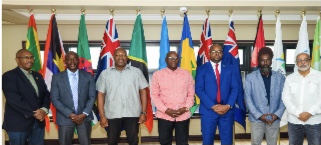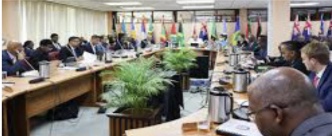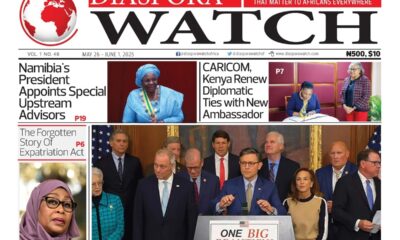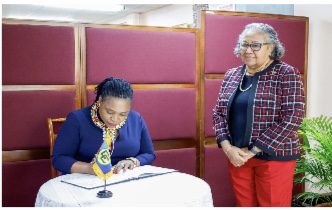News
CARICOM Heads of Government Unite in Grenada to address Regional Challenges

The 47th Regular Meeting of the Conference of Heads of Government of the Caribbean Community (CARICOM) was held in St. George’s, Grenada, from July 28-30, 2024. The meeting brought together leaders from across the region to address pressing issues, including climate change, biodiversity loss, and regional security. Heads of Government emphasized the urgent need for high-level political advocacy to address climate change.
They agreed to deliver a unified statement at COP29 and convene a Donor’s Conference to address the Region’s vulnerability to climate change. The Conference agreed to establish a CARICOM Digital Skills Training and Learning Network and launch the Digi-Smart CARICOM Digital Skills Initiative in 2024. This aims to enhance regional digital resilience and promote economic growth. Heads of Government noted improvements in airlift to, from, and within the Region, including the operationalization of LIAT 2020.
They agreed to host a Regional Symposium on Air Transport in Barbados by the first quarter of 2025. The Conference expressed concern about high levels of crime and violence, fueled by firearms and ammunition trafficking, transnational criminal networks, and social structure deterioration. They committed to ongoing urgent action to protect citizens and preserve public interest. The Partnership aims to address pressing health challenges, including health-related issues of the climate crisis.
Read also : CARICOM Ministers Boost Food Security & Climate Action at Caribbean Week of Agriculture
Member States are invited to partner with HeDPAC to leverage sustainable health development and capacity building. Heads of Government received updates on the Belize-Guatemala and Guyana-Venezuela border issues. They called for peaceful resolution and respect for territorial integrity. The Conference welcomed the report by the President of the newly established Transitional Presidential Council and recognized the appointment of a Prime Minister and new Cabinet. They expressed concern at the dire humanitarian situation and reiterated commitment to support Haiti.
Heads of Government registered concern at the growing humanitarian crisis in Cuba occasioned by the ongoing embargo issued by the United States of America. They issued a Statement of solidarity with Cuba. The Conference expressed appreciation to Dr. Joy St. John, outgoing Executive Director of CARPHA, and Assistant Secretary-General Economic Integration, Innovation, and Development, Mr. Joseph Cox.
Heads of Government accept-ed the invitation of Barbados to host the 48th Regular Meeting of the Conference from February 20-21, 2025. This meeting demonstrated the commitment of CARICOM leaders to address regional challenges and promote sustainable development, economic growth, and social resilience.
News
Is This the Most Pivotal NATO Summit Since the Cold War?

As tensions soar following the United States’ direct strikes on Iran’s nuclear sites, global attention is now turning to the Netherlands, where U.S. President Donald Trump is expected to attend a high-stakes NATO summit on Tuesday. This will be Trump’s first NATO gathering since winning re-election, and anticipation is high—not just for his arrival, but for what the summit might mean for the alliance’s future.
Trump has long criticized NATO allies for depending too heavily on U.S. military support. Now, with growing global instability and a revived American administration that’s more unpredictable than ever, European leaders are scrambling to reassure Washington of their commitment—and to ensure that the U.S. doesn’t scale back its presence in Europe.
“There were moments just weeks ago when we weren’t sure if he’d even show up,” one senior European diplomat admitted. “With Russia and China watching closely for signs of division, that kind of uncertainty could’ve been disastrous.”
In fact, the summit has been carefully designed to appeal to Trump. NATO Secretary General Mark Rutte has centered the agenda around a bold promise: European members will increase their defense spending to 5% of GDP by 2035—up from the longstanding 2% target.
The hope is to convince Trump that Europe is finally serious about its own security, and to avoid confrontations by keeping the discussions narrowly focused on financial contributions.
However, those plans now hang in the balance. Iran has retaliated against the U.S. strikes by launching missiles at American bases in Qatar and Iraq.
The crisis in the Middle East could keep Trump in Washington—or, if he does attend, force the summit’s focus to shift. That risks diplomatic clashes, especially as many European leaders preferred a diplomatic resolution to the Iran issue, rather than military escalation.
Trump has already been promised a symbolic victory. The new defense spending target was meant to showcase European compliance with his demands. “This summit is about credibility,” said U.S. Ambassador to NATO Matthew Whitaker.
Yet even this success is showing cracks. Spain claimed it secured an exemption from the 5% pledge, though Rutte denied that. Other countries are also pushing back, facing tight budgets and mounting political pressure at home.
Still, the underlying reality remains: Europe cannot afford to alienate the U.S.—the alliance’s nuclear and military backbone. That pressure helped Rutte bring most European leaders (except Spain) on board with the spending deal. But even then, former U.S. NATO Ambassador Julianne Smith cautions that “with Trump, nothing is guaranteed.”
There are deeper concerns, too. It’s unclear whether the U.S. will endorse a summit statement naming Russia as NATO’s primary threat. Trump’s conciliatory tone toward Moscow and his coercive approach to Ukraine have already eroded European confidence in the U.S. as a steadfast ally.
Tensions escalated further on Friday night when Trump defended the 5% spending target but insisted that the U.S. wouldn’t need to meet it: “I don’t think we should—but I think they should. We’ve been supporting NATO so long…”
While blunt, Trump’s stance isn’t unique. Past presidents, including Barack Obama, signaled a pivot away from Europe toward strategic concerns in the Indo-Pacific. What makes Trump different is his unpredictability and blunt transactional style.
The U.S. currently has about 100,000 troops stationed across Europe, including 20,000 in NATO’s eastern flank—deployments ordered after Russia’s full-scale invasion of Ukraine. But these numbers may not last. U.S. defense officials are reviewing troop levels and budgets, and many expect cuts later this year. Ukraine may also lose U.S. financial support, adding to regional uncertainty.
Despite all this, some NATO members like Poland remain optimistic. Spending 4.7% of its GDP on defense—more than any other NATO country—Poland aims to build Europe’s most formidable land force. For Warsaw, which borders Ukraine and remembers life under Soviet domination, defense is non-negotiable.
Elsewhere in Europe, the situation is more fragile. In Spain, debates over military spending have ignited political tensions and threatened the stability of the ruling coalition.
To ease the financial strain, NATO has proposed splitting the 5% pledge into two parts: 3.5% for direct military spending, and 1.5% for defense-related infrastructure, such as cyber defense or expanded seaports.
This model also aligns NATO’s targets more closely with U.S. spending levels, offering a psychological win without matching the U.S. dollar-for-dollar.
But the reality remains: funding this buildup will require painful trade-offs. Countries may need to raise taxes, increase borrowing, or cut public services. Estonia has experimented with new taxes, while Italy—burdened by debt—may face steep borrowing costs.
The UK, in its recent Strategic Defence Review, acknowledged the need for more military investment but stopped short of preparing its public for the sacrifices required.
The timing is also crucial. NATO wants the 5% target met within 7 to 10 years, but Secretary General Rutte has warned that may be too slow. With Russia’s war economy in full swing, he believes Moscow could strike a NATO member within five years.
Still, defense spending alone won’t solve the problem. European forces suffer from inefficiencies and duplication—178 different weapons systems and 17 tank models across the EU, for instance.
Pooling resources would increase efficiency, but national pride and domestic defense contracts make such cooperation politically sensitive and unlikely to be resolved at this summit.
So what can we expect?
That depends largely on whether Trump shows up—and how he decides to engage. His ambassador believes this could be a defining moment.
“A watershed,” one senior official called it—possibly the most consequential NATO summit since the Cold War. The moment Europe begins to match the U.S. on defense—and finally starts to take full responsibility for its own security.
….
Kenya Rocked by Deadly Protests Over Economic Hardship
At least eight people have been confirmed dead in Kenya following widespread protests against soaring living costs, unemployment, and alleged government corruption.
The unrest has escalated into violent clashes between demonstrators and security forces, with eyewitnesses reporting chaotic scenes as police deployed tear gas and live ammunition to disperse crowds in major cities.
The protests reflect public outrage over inflation that has rendered basic commodities unaffordable.
Demonstrators accuse the government of failing to provide relief or accountability, particularly in light of persistent allegations of corruption and mismanagement.
Hospitals in affected areas have been overwhelmed with casualties, including both protesters and security personnel.
The Kenyan government has condemned the violence and urged citizens to exercise their rights peacefully.
Authorities have promised investigations into the fatalities, but many remain skeptical about whether justice will be served. Human rights organizations have decrying what they describe as excessive force by law enforcement.
Many fear that without meaningful engagement and structural reform, the unrest may continue.
The situation continues to unfold, with many calling for transparency, accountability, and a commitment to upholding civil rights.
News
Nigeria’s Consul General in New York Receives Diaspora Watch Publisher, Boniface Ihiasota
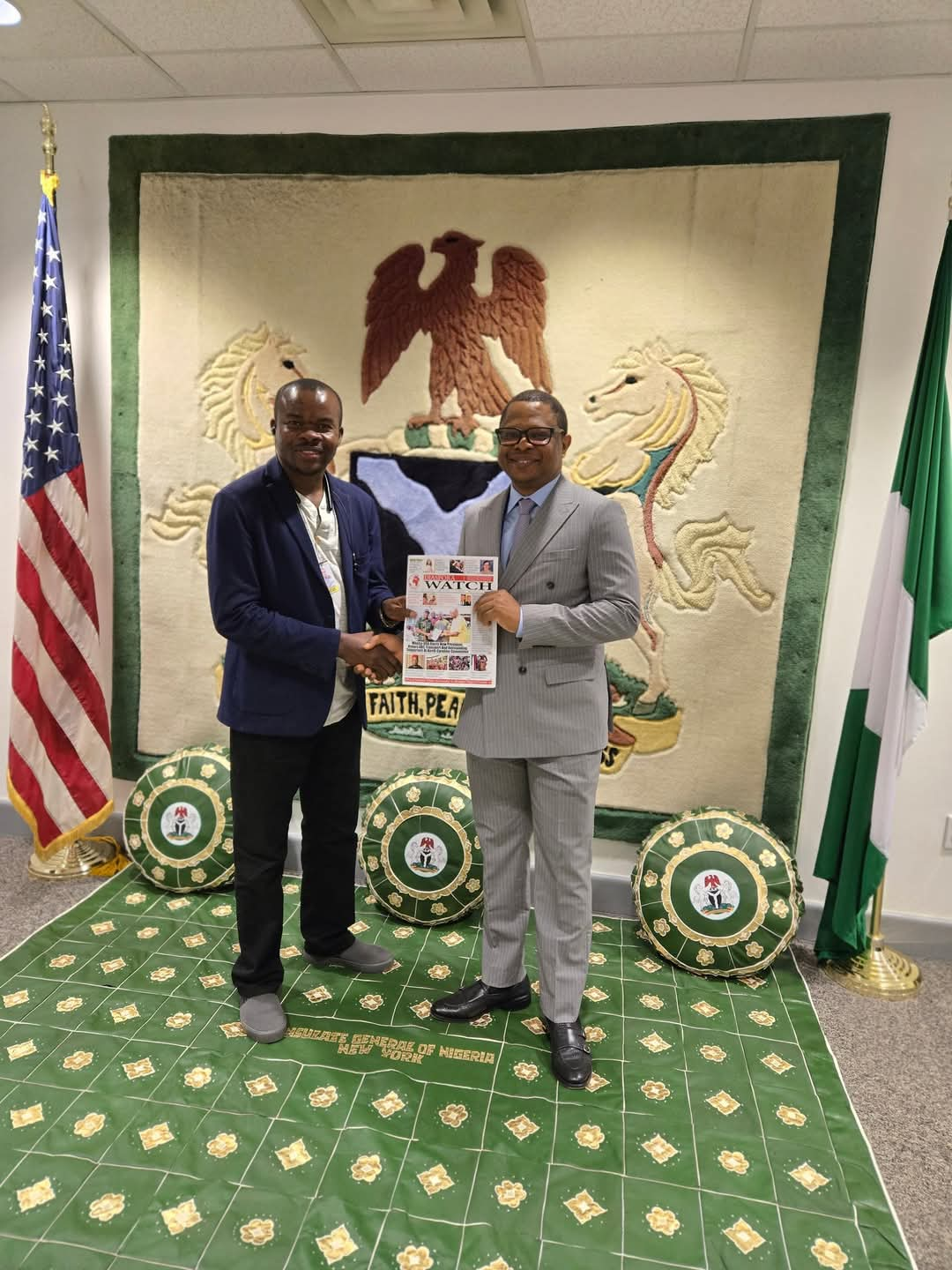
Nigeria’s Consul General in New York Receives Diaspora Watch Publisher, Boniface Ihiasota
Boniface Ihiasota, the renowned publisher of Diaspora Watch Newspaper Weekly, was recently hosted by the Consul General of Nigeria in New York, Ambassador Lot Egopija, in a meeting that underscored the growing importance of diaspora media in nation-building.
The meeting, was part of an ongoing effort to engage with key figures in the Nigerian diaspora who are contributing significantly to public discourse, community development, and national progress through media and advocacy.
Ihiasota, has been at the forefront of diaspora journalism for over a decade, His publication, Diaspora Watch, has become a respected voice among Nigerian communities in the United States and beyond, chronicling both the achievements and challenges of Nigerians abroad while advocating for stronger institutional ties with Nigeria.
During the visit, Ambassador Egopija commended Ihiasota’s commitment to amplifying the voices of Nigerians in the diaspora, noting that the Consulate remains open to collaboration with media partners to improve communication and promote transparency in Nigeria’s foreign missions.
“Mr. Ihiasota’s work in highlighting the concerns and contributions of the Nigerian diaspora aligns with our mission to build a responsive and people-centered diplomatic service,” Egopija said. He added that diaspora engagement remains a top priority for the Federal Government, especially in areas like remittances, investment, and national rebranding.
In response, Ihiasota expressed appreciation for the Consul General’s warm reception and acknowledged the critical role the Consulate plays in supporting the welfare of Nigerians in the U.S. He also emphasized the need for continued collaboration between government institutions and independent media.
“The African diaspora is not just a source of remittances; we are a powerful force for advocacy, innovation, and development,” Ihiasota remarked. “Media platforms like Diaspora Watch exist to tell those stories, hold stakeholders accountable, and build a narrative that reflects the resilience and excellence of our people.”
The meeting ended on a hopeful note, with both parties agreeing on the importance of strategic communication, inclusive diplomacy, and the collective effort required to uplift Nigeria’s global image.
News
Outrage in Nigeria over Alleged Extension of Corps Member Service Year for Criticizing Tinubu
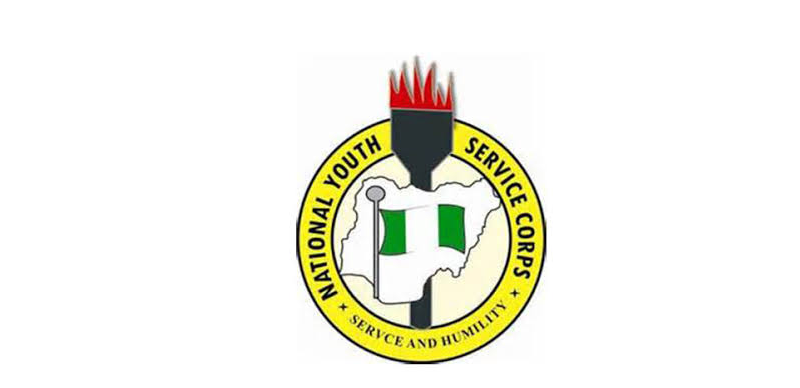
Outrage in Nigeria over Alleged Extension of Corps Member Service Year for Criticizing Tinubu
The National Youth Service Corps has denied extending the service year of a Lagos corper, Rita Uguamaye, also known as Raye, for criticising the administration of President Bola Tinubu.
Uguamaye had, in a viral video shared on her TikTok account, @talktoraye, expressed frustration over Nigeria’s worsening economic conditions, lamenting the high inflation and economic hardship.
She had also criticised the President by describing him as a “terrible leader” while questioning the government’s efforts to alleviate the hardship faced by the citizens.
Following her allegations, several individuals, including ex-Vice President Abubakar Atiku and human rights activist Omoyele Sowore, condemned the alleged threat to her life.
Sharing a news caption on Tuesday that read, “NYSC punitively extends Raye’s service year by 2 months for criticising Tinubu’s administration over hardship,” Sowore vowed to protest at the NYSC passing out parade.
When contacted on Tuesday, the acting NYSC Director, Press and Public Relations, Carol Embu, said the decision to extend a corps member’s service year is made when such a person is passing out.
She disclosed that there are guidelines that would be followed if such an action were to be taken.
“Who is Sowore? Does he work with the NYSC? So, how come you are listening to him? I don’t understand how she will get an extension if she is still serving.
NYSC is not an irresponsible organisation; we work with rules and regulations. She is still serving; if she has any issues, we will wait and see,” Embu said.
Meanwhile, our correspondent could not independently verify the claim of a service year extension from Uguamaye.
She also did not make any post on such a claim on her social media handles.
-

 News6 days ago
News6 days agoNigeria’s Consul General in New York Receives Diaspora Watch Publisher, Boniface Ihiasota
-
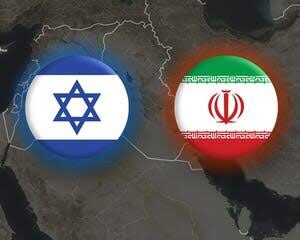
 News1 week ago
News1 week agoPutin Condemns U.S. Strikes on Iran, Warns of Escalating Global Danger
-
Features6 days ago
Guyana, CDF Sign US$18m Agreement for Agricultural Development
-

 Business6 days ago
Business6 days agoEU, Liberia Sign €25m Agreement to Boost Private Sector Development
-

 News1 week ago
News1 week agoIsrael Bombs Iran’s Evin Prison as U.S. Joins Conflict: Tensions Soar in Middle East
-

 Milestone6 days ago
Milestone6 days agoAisha Braveboy Sworn in as Prince George’s County Executive, Appoints New Police Chief


